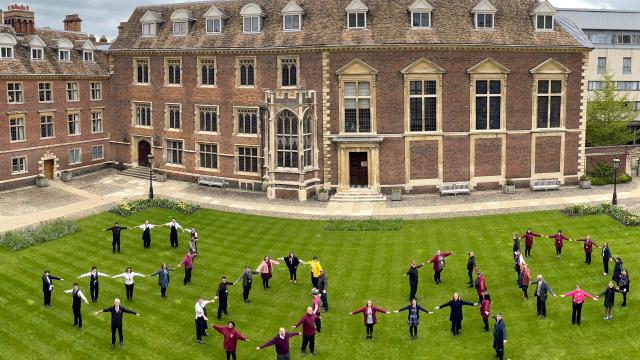
Accessible interpretations of German and European history
St Catharine's Fellow Professor Sir Christopher Clark is the author of Iron Kingdom: The Rise and Downfall of Prussia, 1600-1947 and The Sleepwalkers: How Europe Went to War in 1914. His work has delivered accessible interpretations of German and European history to a mass television audience and, through reflecting on the meaning of the Great War, has helped shape international discussion in a period of crisis.
Iron Kingdom (2007) offered a major reinterpretation of the history of the Kingdom of Prussia between around 1600 and 1947, when Prussia was abolished by order of the victorious Allies after the end of the Second World War.
The Sleepwalkers (2012) drew on archives in Russia, Serbia, France, Germany, the Netherlands, Belgium, Austria and Britain to provide a fresh picture of the processes of change that made the outbreak of a European war possible in 1914.
Both books were animated by Clark’s aspiration to write European history in a truly joined-up sense and to challenge the binary oppositions, often implicitly ethical or evaluative in character, which underwrote some of the most influential narratives in his field.
For instance, The Sleepwalkers shifted the focus of attention by changing the question. Instead of asking why the war broke out, it posed the question: how did peace become war? The aim was not to identify a suspect state and gather evidence for the prosecution, but to look at all the events and processes that made this war possible, to understand how the pieces of causation needed to bring it about fell into place before and in 1914.
His academic work has resulted in a series of major television documentaries in Germany as well as close collaboration with the German government around their response to the 100th anniversary of the Great War.
Clark’s work has also impacted and shaped how German documentary producers, TV networks and policymakers think about and present their nation’s history and popular perceptions of German history both at home and abroad.
His work has further influenced a number of political leaders in their reflections on the role of Germany in Europe and the causes of the Great War. For instance, former Australian Prime Minister Kevin Rudd said in 2017 that the arguments advanced in The Sleepwalkers highlighted the risk of conflict in the present-day Asia-Pacific region.






